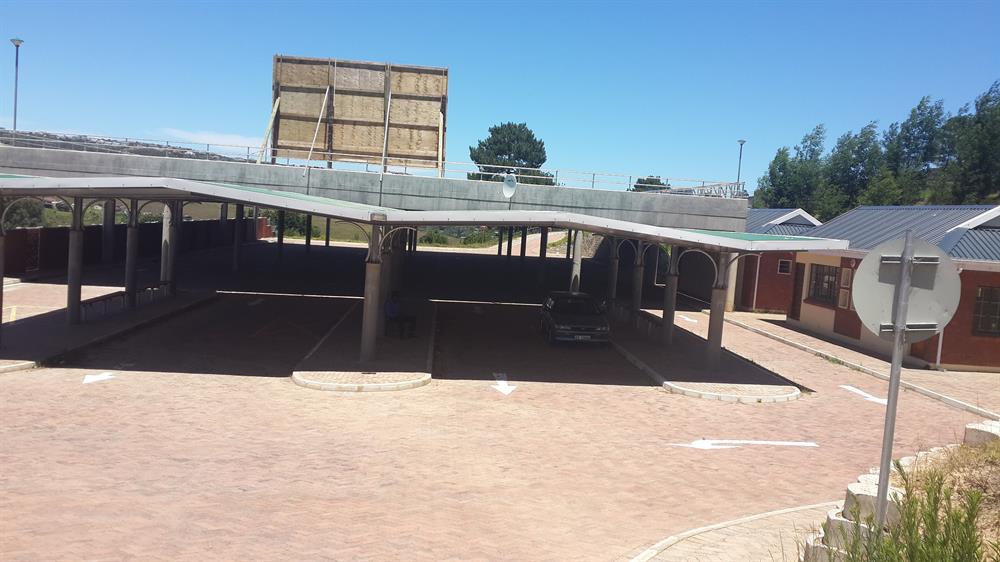Graham MacDonald, deputy chairperson of KRA wanted to know what the municipality planned to do about the poor state of roads. “Everybody is unhappy about it. If it carries on like this, Knysna will soon be a destitute town. You can talk as much as you like about tourism and bringing people here, but if the roads are going to be neglected, it is going to have a terrible effect.”
Councillor Louisa Hart, chairperson of the portfolio Planning, Development and Infrastructure said the Knysna Council have for years been very aware of Knysna’s poor road situation. She explained that in 2003, the town engineer of public works then, Shaun Maree told the council that 1% of the entire budget was needed to repair and maintain roads. However, "they did nothing" with the money they had but instead spent it on other things.
According to Hart, the Knysna Council has received only R4.3-million for its entire roads complement in Knysna, which is not enough to rebuild roads. Only to improve the roads by re-gravelling, patching and sealing will cost an additional R2-million.
“We are now looking at roads most travelled, such as the George Rex Drive, the roads leading to the Northern suburbs and other roads that school busses travel upon.” KRA chairperson Leon Naudé shared his opinion that George Rex Drive could not be patched any more, but would need to be rebuilt. He believed that George Rex Drive had been treated incorrectly from the start, especially when the former concrete road was re-surfaced. He wanted to know how the Knysna Council would go about correcting that error.
Hart said that the council had applied for money from the Municipal Infrastructure Grant (MIG) for the purpose of rebuilding the road. Hart could not give a definite date when the road maintenance operations would commence.
MacDonald raised the issue of pollution of Knysna's rivers and estuary, a matter which concerned many residents. Hart gave her assurance that the council was actively exploring ways to address this problem, especially because the lagoon and the rivers are “the money-spinners of Knysna”. Hart explained that the pollution originated predominantly from the informal settlements. The council had received R9-million from Central Government, which the Knysna Council intended to use to erect ablution blocks in certain areas. Council was also exploring other avenues to prevent pollution, such as the use of wetlands as natural catchment and purifying areas before river water enters the lagoon. Hart also reported that while the E.Coli levels measured high in the rivers, the samples taken of the salt water, one meter into the lagoon, tested clear, which was good news for swimmers.
MacDonald further queried the Knysna Municipality creation of many new jobs and granting of salary increases, all costing millions of Rand. MacDonald believed that the money could have been used towards other important matters.
Wolmarans clarified, “Knysna Municipality created 27 posts in the organisational structure over the last two years of which 20 have been filled. Some of these positions were conversions of existing staff members and part of a re-structuring process to ensure optimum functionality. In addition, several contract positions were made permanent and these were largely in the emergency and essential services departments.
Furthermore, some contract positions were not renewed and some posts were done away with because of cost implications. Council approved this process.” Regarding the alleged salary increases for councilors, Wolmarans said the president had not yet announced any increases for public representatives. "This has to come from the President's Office and be signed off by him. It encompasses increases for members of parliament and all public representatives, including municipal councillors." She said that as soon as the proposed increases were received, the council has to consider the matter. Should the council decide to implement the new salary scale, such decision first needed to be approved by the relevant provincial minister for local government after considering the the oversight and financial health of the municipality.
Lastly, MacDonald questioned the council's management of funds and assets with specific reference to the newly built, but unused taxi rank in Hornlee. “You spent lots of money to build it, but it is empty, no-one uses it?” According to Wolmerans, the taxi rank was already there when the current council came into power in 2011. She explained that the taxi drivers had originally insisted on the taxi rank, but consequently refused to occupy and use the premises. She said they were discussing with other municipal departments how the building could be used in other ways.

Knysna's 'white elephant'. The new, but empty taxi rank in Hornlee was under discussion at the recent meeting between the mayoral committee and the Knysna Ratepayers' Association (KRA).
'We bring you the latest Knysna | Garden Route news'
















